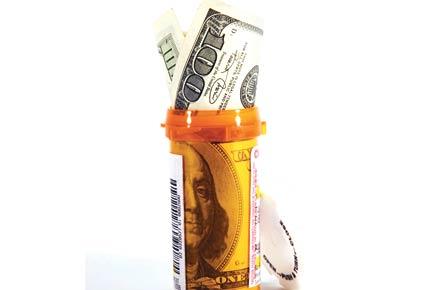Medicine prices set to rise as Centre withdraws Customs exemption on 74 drugs, including those for cancer and HIV

New Delhi: As many as 74 drugs, including lifesaving ones used for treating cancer and HIV, will see sharp rise in prices as the government has withdrawn customs duty exemption on their imports.
ADVERTISEMENT

“The withdrawal of exemption from basic customs duty for certain drugs and medicines, including lifesaving drugs is intended to provide protection to the domestic manufacturing industry and enhance the attractiveness of Make in India initiative,” said Sachin Menon, India Partner and Head of Indirect Tax, KPMG, adding that the move seems to be in line with the government’s objective to rationalise the duty exemptions.
The Central Board of Excise and Customs (CBEC) last week issued a notification withdrawing exemption of levy of basic customs duty on as many as 74 drugs. The medicines on which customs duty will now be imposed include the ones used for treating kidney stones, cancer chemotherapy and radiotherapy, life-threatening heart rhythm disorders, diabetes, Parkinson's disease, bone diseases, antibiotic to treat infections.
Besides, drugs used for bacterial infections, leukemia, anaesthetic medication, human immunodeficiency virus (HIV) or hepatitis B virus cells, allergies, arthritis, lupus and ulcerative colitis might also see spurt in prices. Also drugs used in blood dilating medicine or for treating menopause, glaucoma, anogenital warts, poisoning by a chemical or pesticide, growth failure in children and adults who lack natural growth hormone would also attract customs duty.
“An increase has also been made in the customs duty rates of certain life saving drugs such as abciximab, anti-rabies immunoglobin, FSH, procarbazine and saquinavir to 35 per cent,” said, MS Mani, senior director, Deloitte India. These changes signify the intention of the government to promote domestic manufacture of these items as imports would now become more expensive, he added.
 Subscribe today by clicking the link and stay updated with the latest news!" Click here!
Subscribe today by clicking the link and stay updated with the latest news!" Click here!






